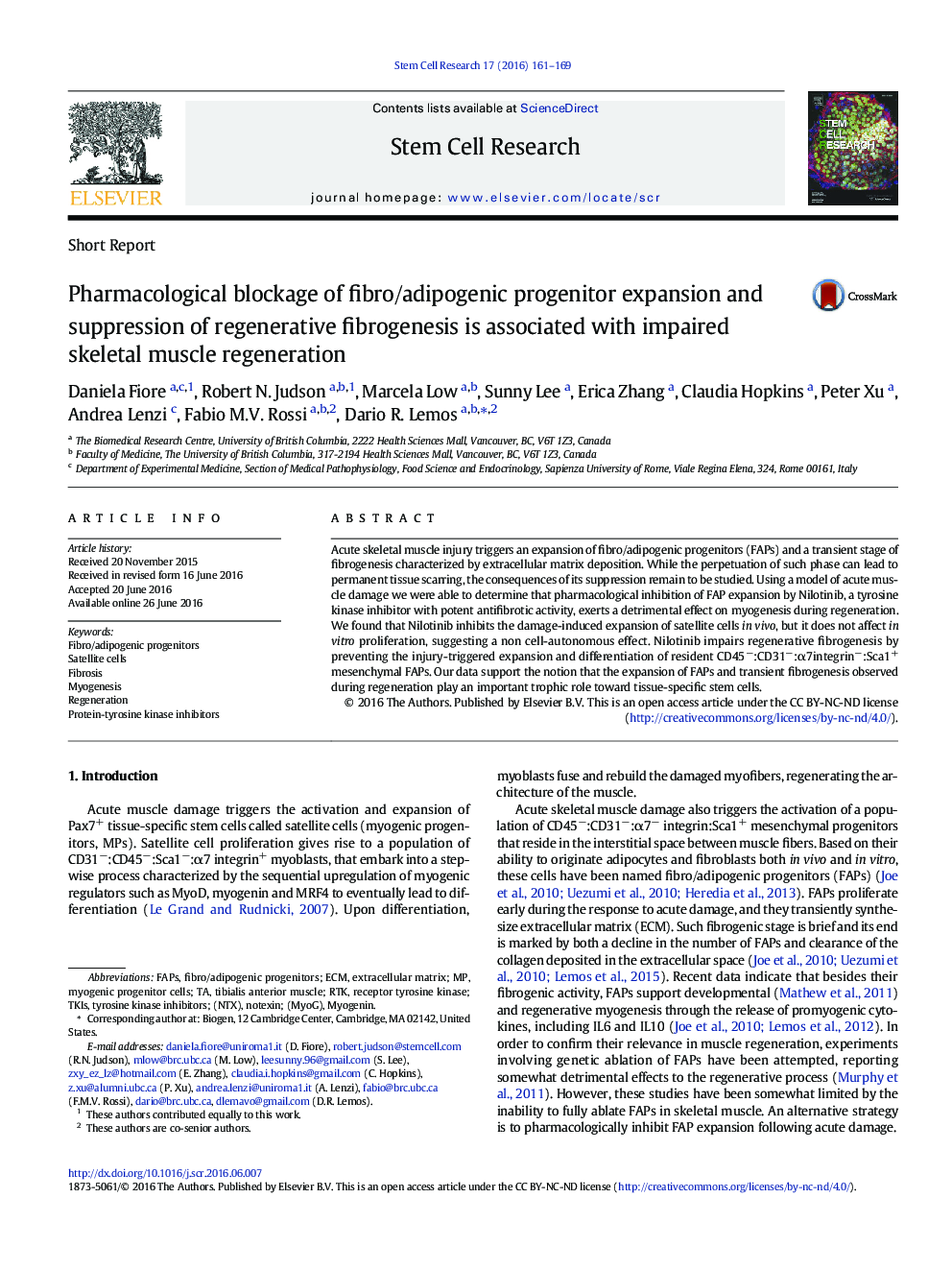| کد مقاله | کد نشریه | سال انتشار | مقاله انگلیسی | نسخه تمام متن |
|---|---|---|---|---|
| 2094102 | 1081990 | 2016 | 9 صفحه PDF | دانلود رایگان |
• RTK signaling drives damage-induced FAP proliferation and differentiation.
• RTK inhibition impairs fibrogenesis and myogenesis in regenerating skeletal muscle.
• FAP expansion stimulates satellite cell proliferation.
Acute skeletal muscle injury triggers an expansion of fibro/adipogenic progenitors (FAPs) and a transient stage of fibrogenesis characterized by extracellular matrix deposition. While the perpetuation of such phase can lead to permanent tissue scarring, the consequences of its suppression remain to be studied. Using a model of acute muscle damage we were able to determine that pharmacological inhibition of FAP expansion by Nilotinib, a tyrosine kinase inhibitor with potent antifibrotic activity, exerts a detrimental effect on myogenesis during regeneration. We found that Nilotinib inhibits the damage-induced expansion of satellite cells in vivo, but it does not affect in vitro proliferation, suggesting a non cell-autonomous effect. Nilotinib impairs regenerative fibrogenesis by preventing the injury-triggered expansion and differentiation of resident CD45−:CD31−:α7integrin−:Sca1+ mesenchymal FAPs. Our data support the notion that the expansion of FAPs and transient fibrogenesis observed during regeneration play an important trophic role toward tissue-specific stem cells.
Journal: Stem Cell Research - Volume 17, Issue 1, July 2016, Pages 161–169
